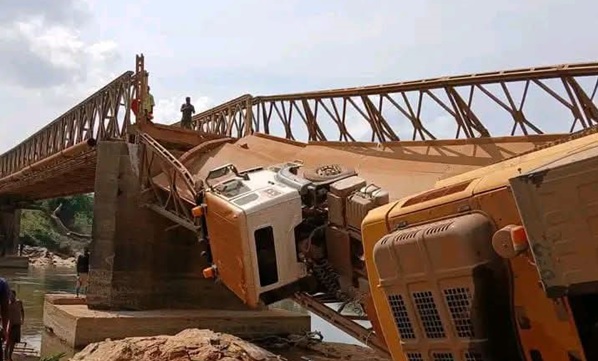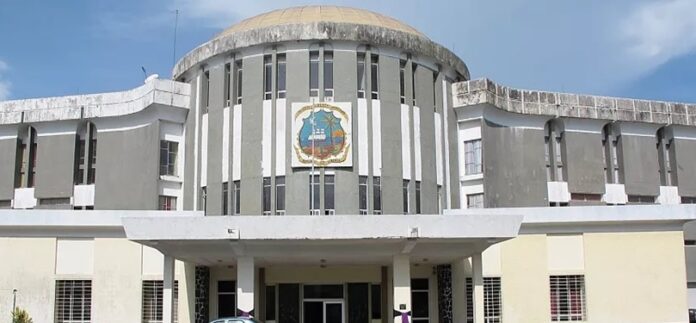MONROVIA, LIBERIA – The collapse of the Cestoe River Bridge, a vital link connecting Rivercess and Sinoe counties, has plunged southeastern Liberia into isolation. The bridge, located in ITI, served as a lifeline for social and economic activities, linking the region to Grand Bassa, Margibi, and the capital city, Monrovia. With the structure destroyed, travelers are now forced to rely on the lengthy and challenging detour through Nimba and Grand Gedeh counties. The disaster, which occurred early on December 30, 2024, was caused by a heavily loaded vehicle carrying an excavator, which exceeded the bridge’s weight limit and ultimately led to its collapse.
In its official statement, the Ministry of Public Works (MoPW) highlighted the history of the bridge’s recent structural challenges. In November 2024, the ITI Bridge faced severe over-flooding and exhibited unusual vibrations, prompting immediate intervention. The Ministry’s Bridge Unit decommissioned the structure for comprehensive repairs, which included replacing damaged components and conducting a detailed inspection. Upon completion, the bridge was declared safe for use, and measures were put in place to regulate its load capacity. The Ministry also held consultations with community stakeholders and security agencies to ensure strict adherence to the 25-ton weight limit, which was deemed critical for the bridge’s durability.
The Ministry has expressed disappointment that these efforts were undermined by the failure to enforce regulations. Preliminary investigations indicate that the load-bed truck carrying the excavator weighed over 50 tons—double the bridge’s capacity. This blatant disregard for safety protocols highlights systemic lapses in regulatory enforcement. Commander Eric Zor, who led the Joint Security tasked with monitoring compliance, had previously assured the Ministry of vigilance in protecting the bridge. However, the incident reveals a critical breakdown in oversight, resulting in the destruction of a crucial national asset.
Beyond the immediate inconvenience to travelers and businesses, the collapse of the ITI Bridge stresses the broader challenges facing Liberia’s infrastructure. With roads and bridges playing a critical role in national development, the lack of stringent enforcement and accountability jeopardizes not only public safety but also economic stability. The southeastern region, heavily reliant on the ITI Bridge for the transport of goods and services, is now facing significant disruptions that will likely impact livelihoods and local economies.
In response to the incident, the Ministry of Public Works has pledged to conduct a thorough investigation to identify the parties responsible for the violation. It has also called for greater collaboration among stakeholders to prevent future occurrences. The Ministry stressed the need for heightened vigilance and accountability from regulatory bodies, particularly when it comes to protecting critical infrastructure. While no casualties were reported, the collapse serves as a wake-up call for Liberia to prioritize infrastructure resilience and ensure that public assets are safeguarded against misuse.
Meanwhile, Facebook commenters highlighted that the ITI Bridge collapse is not just a loss of infrastructure but a stark reminder of the fragility of Liberia’s transport network and the consequences of negligence. Gabriel Nah emphasized that moving forward, the government must take decisive action to address the systemic issues enabling such incidents. This includes investing in durable infrastructure, strengthening regulatory frameworks, and promoting accountability to prevent similar tragedies in the future.







